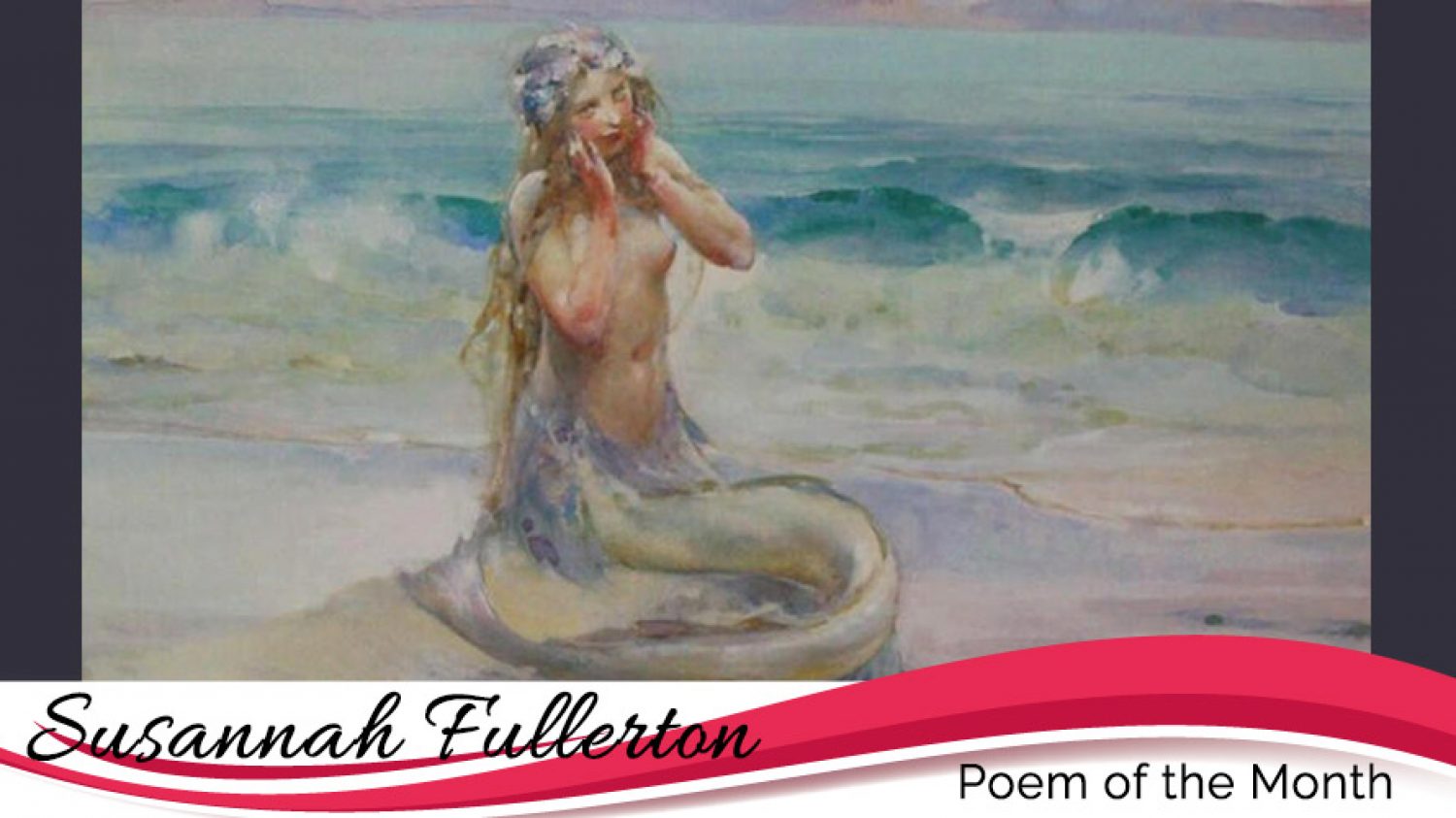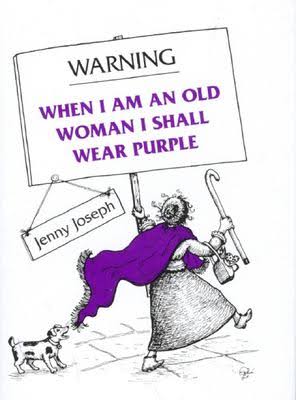The only way to experience the poem I’ve chosen for you this month is to listen to Richard Burton read it. Please give yourself a treat and listen to his glorious Welsh voice reading this intriguing poem.
Or you can listen to Graves read it himself, but, in my view, Richard Burton does it better.
A Welsh Incident by Robert Graves
‘But that was nothing to what things came out
From the sea-caves of Criccieth yonder.’
‘What were they? Mermaids? Dragons? Ghosts?’
‘Nothing at all of any things like that.’
‘What were they, then?’
‘All sorts of queer things,
Things never seen or heard or written about,
Very strange, un-Welsh, utterly peculiar
Things. Oh, solid enough they seemed to touch,
Had anyone dared it. Marvellous creation,
All various shapes and sizes, and no sizes,
All new, each perfectly unlike his neighbour,
Though all came moving slowly out together.’
‘Describe just one of them.’
‘I am unable.’
‘What were their colours?’
‘Mostly nameless colours,
Colours you’d like to see; but one was puce
Or perhaps more like crimson, but not purplish.
Some had no colour.’
‘Tell me, had they legs?’
‘Not a leg or foot among them that I saw.’
‘But did these things come out in any order?’
What o’clock was it? What was the day of the week?
Who else was present? How was the weather?’
‘I was coming to that. It was half-past three
On Easter Tuesday last. The sun was shining.
The Harlech Silver Band played Marchog Jesu
On thirty-seven shimmering instruments
Collecting for Caernarvon’s (Fever) Hospital Fund.
The populations of Pwllheli, Criccieth,
Portmadoc, Borth, Tremadoc, Penrhyndeudraeth,
Were all assembled. Criccieth’s mayor addressed them
First in good Welsh and then in fluent English,
Twisting his fingers in his chain of office,
Welcoming the things. They came out on the sand,
Not keeping time to the band, moving seaward
Silently at a snail’s pace. But at last
The most odd, indescribable thing of all
Which hardly one man there could see for wonder
Did something recognizably a something.’
‘Well, what?’
‘It made a noise.’
‘A frightening noise?’
‘No, no.’
‘A musical noise? A noise of scuffling?’
‘No, but a very loud, respectable noise —-
Like groaning to oneself on Sunday morning
In Chapel, close before the second psalm.’
‘What did the mayor do?’
‘I was coming to that.’
Robert Graves (1895 – 1985) was a poet and novelist (did you watch the fabulous production of his novel I, Claudius on TV in the 1970s?). He said he wrote this poem as a joke and in a Welsh accent. You notice the Welsh place names and the sing-song rhythm of the conversation. The poem was inspired by an incident in a railway carriage. Young Robert was travelling with his father and on the train was a Welsh policeman who started telling everyone about a mermaid he had seen – the encounter made a deep impression on him.
The poem is a conversation. One speaker is telling of the ‘things’ that came out of the sea, while the other is asking urgent questions, wanting a full description of what happened. It begins in mid-conversation and ends without any resolution to the story or the dialogue. The main speaker is a man who knows he has an astonishing story to tell and is not going to be hurried! The open ending is in keeping with the comic tone of the poem.
The poem is also a delightful satire on the Welsh – their religious conformism and also their fondness for discursive storytelling. The ‘things’ are “very un-Welsh”, each “perfectly unlike his neighbour”, the Mayor goes out to greet them and the people seem stuffy in comparison with the strange creatures invading their very ordinary place, creatures that will not keep time to the band and make noises like the groans they themselves make in chapel.
Robert Graves was born in London, but family holidays were spent at Harlech in Wales. This poem was published in 1929. He became Professor of Poetry at Oxford in 1961. You might like to read his fabulous memoir about his war experiences, Goodbye To All That.
Have you enjoyed this poem? Share your thoughts by leaving a comment.
Comments are moderated, and will not appear until approved.
[DISPLAY_ULTIMATE_PLUS]


william s etheridge
Graves hands down!!
william s etheridge
Haha.
“Did it make a noise?”
So last Wednesday morning our espresso coffee pot exploded on the stove, spraying grounds about like an abstract painting.
I mentioned it to Alex later that day by WotsApp.
“Did it make a noise?” he replied!
Oh yes! A very loud unpeculiar noise.
Which reminded me of Graves poem of course, read by RB of course.
Looking for a reading I googled “Robert Graves poem did it make a noise”.
And up popped SF as second in line.
Susannah Fullerton
Hope the exploding coffee pot didn’t cause too much damage?
D.Edwards
Yes, like someone else said, this is set in North Wales, but Burton’s accent is South Wales. And to even say “North Wales” accent and “South Wales” accent is incorrect as there are variants of those. I’m a Welsh speaker from Anglesey, and a Welsh speaker from over the Straits in Caernarfon would have a different accent. Whenever there is a Welsh voice or character depicted, it’s always a vague “South Wales” accent that’s spoken. Imagine if we just had one “English accent” and decided everyone from England — Liverpool, Cornwall, Newcastle, Birmingham etc — spoke with an East End accent. As a Welsh speaker, the readings don’t quite work for me as even Burton mispronounces place names. Interesting poem, however; hugely creative.
Susannah Fullerton
Thanks for your comments. As I live in Australia, I don’t have experience of the varied accents in Wales, so was interested in your comments. However, I do adore Richard Burton reading the poem.
william s etheridge
Well to a mongrel Scot it sounds Welsh enough to me.
And the poem reminds me again of one of Britain’s – yes Britain so rounds up the Welsh and the Scots – greatest gifts to humanity, greater even than cricket and football though perhaps not curling, is… humour.
Susannah Fullerton
Yes, there’s no sense of humour better than the British! Not at all sure I can agree with you about cricket and football though. In my view, their greatest gift to himanity is literature.
Martin Barlow
Interesting to read the comments above about the relative merits of Burton’s and Graves’s readings. For a north Walian like myself, while Richard Burton’s voice is always a profound pleasure to hear, his south Wales accent is all wrong for this poem with its north Wales place names and imagery. Graves himself, on the other hand, has got it absolutely to a tee and gives it exactly as one would expect to hear it from someone from the area in question and of the background one deduces from the way the story is told. I have a vivid memory of the opposite situation – a BBC radio dramatisation of some aspect of Dylan Thomas’s life in which Thomas was played by an actor with a north Wales accent, which wholly undermined the piece’s credibility given the completeness of Thomas’s association with Swansea and his own south Wales (albeit posh/anglicised) accent. Still, it probably won’t mean a thing to anyone not aware of the huge (for us) difference between a north Wales accent and a south Wales one!
Susannah Fullerton
Thanks so much for your comments. I’m afraid my knowledge of Welsh accents isn’t good enough for me to have picked up those differences but I can well understand that it jars when the accent is wrong. I adore Burton’s voice reading anything, but will go back to the Graves reading with a new appreciation.
K. Madge
A metaphor for poetry. Graves reads it wonderfully.
Susannah Fullerton
He does read it superbly!
Katharine Madgr
This poem is about poetry itself: the “things” are a metaphor for the unfolding of new meanings and ‘hitherto unseen’ use of language that are the poet’s creative progeny. It is fitting that it is in Welsh because of the deep appreciation of language and musicality and the bardic tradition in Wales. Graves knew Wales very well: his reading is wonderful. Welsh people revel in this poem (which presents English as a second tongue, merely fluently spoken, as opposed to ‘ good Welsh ‘). While the poem is gently mocking, more importantly it expresses a sense of wonder. It is not a satire in my view, a lot deeper than that.
Susannah Fullerton
Yes, it is a poem that could only be set in Wales with its love of song and language.
Tudor Rickards
One of my favourite poems. I would like to read it as a podcast, but am not sure of the copyright.
I would be not, of course, able to compete with the efforts of great narrators. At least, I have a possible welsh accent.
I read the poem to a pre-teenager recently and it delighted her.
Susannah Fullerton
There was a recording of Richard Burton reading it, but I’m not sure where you can find it now. He had exactly the right accent. It’s a fabulous poem, isn’t it.
Chris
I was a little surprised to find that Robert Graves´ version didn´t match up (imho), to Burton´s, or even Dylan´s. Of course the latter two had the advantage of their natural welsh accent.
Susannah Fullerton
I agree – it’s a long way from matching up. I think the poem really needs a rich Welsh accent.
Pat Simmons
Wonderful poem. Love the Richard Burton version.
Susannah Fullerton
Isn’t it a fabulous poem and his voice is just so rich and gorgeous!
Denis Mayne
My wife and I loved this poem. When she was in a deep induced coma I would read it to her along with other poems but as she was coming out of her coma it was Welsh Icident that was in her head
Susannah Fullerton
It’s very moving to hear that. Poetry reaches people in such amazing ways.
Louise
That was wonderful. Thank you. Richard’s rich husky tone is just perfect for this enticing poem. What a tease to leave it hanging! It reminded me of how I use to love listening to Leonard Teal read Henry Lawson.
Susannah Fullerton
Doesn’t he read it superbly!!!
David Castle
I loved the poem and particularly the Richard Burton reading. Where did you find it? Are you familiar with the latest poetry anthology by Paul Kelly – “Love is strong as death”? It has many of my favourite poems, but nothing by Robert Graves. Thank you so much for your newsletter.
Susannah Fullerton
So glad you enjoyed the poem. I first heard it on an audio compilation of poems and just loved it. That was read by the divine Richard Burton and since then, I’ve felt he is the ONLY reader of that poem.
Thanks for recommending the Paul Kelly anthology. I’ll look out for it as I don’t know it.